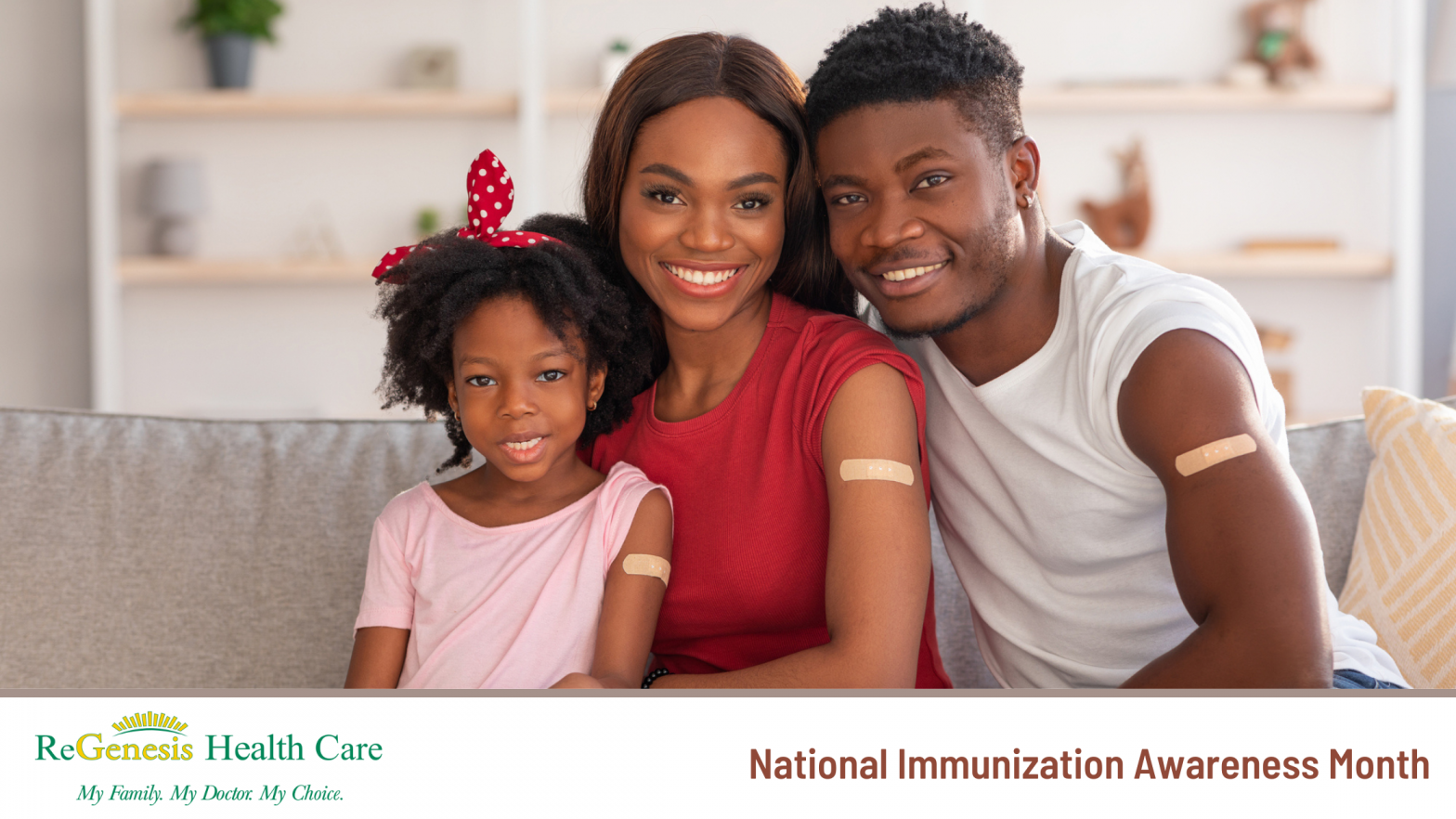August is a special month for parents nationwide—it’s National Immunization Awareness Month (NIAM). This annual observance highlights the importance of vaccinations for people of all ages, especially children. For parents, it’s a timely reminder of how crucial it is to keep your family protected from various diseases.
The Importance of Vaccinations
Vaccinations are a key component of public health. They protect individuals and communities by preventing the spread of contagious diseases. For children, vaccines can prevent severe illnesses like measles, mumps, and whooping cough. For adults, staying up to date with vaccinations can prevent diseases such as flu, pneumonia, and shingles. Vaccines do more than just protect you; they help create a shield around the community, especially for those who can’t get vaccinated due to health reasons. This collective shield, known as herd immunity, is crucial for safeguarding everyone, ensuring that even the most vulnerable among us are protected.
Latest Recommended Vaccines for Children
In today’s rapidly evolving healthcare landscape, it’s essential to stay informed about the latest vaccine recommendations. Here are some key vaccines recommended for children:
- COVID-19 Vaccine: Approved for children aged six months and older, the COVID-19 vaccine is crucial in preventing severe illness and reducing transmission.
- MMR Vaccine: (Measles, Mumps, and Rubella): Typically administered in two doses, the MMR vaccine is essential for preventing these highly contagious diseases.
- Tdap Vaccine: (Diphtheria, Tetanus, and Pertussis): Given in multiple doses starting from two months old, this vaccine protects against three serious bacterial infections.
- HPV Vaccine: (Human Papillomavirus): Recommended for preteens aged 11 to 12, this vaccine protects against cancers caused by HPV infections.
Addressing Common Misconceptions and Concerns
It’s natural for parents to have questions and concerns about vaccines. Let’s address some common misconceptions:
- Myth: Vaccines cause autism.
- Fact: Numerous studies have shown no link between vaccines and autism. Vaccines are rigorously tested for safety and efficacy.
- Myth: Natural immunity is better than vaccine-acquired immunity.
- Fact: While natural immunity can sometimes offer stronger protection, the risks of severe illness or complications from the disease far outweigh the benefits.
- Myth: Vaccines contain harmful ingredients.
- Fact: Vaccine ingredients are safe in the amounts used. They are thoroughly tested to ensure they do not pose a risk to health.
Practical Tips for Keeping Track of Your Family’s Vaccination Schedules
Staying on top of your family’s vaccination schedule can be overwhelming, but it doesn’t have to be. In addition, here are some practical tips:
- Use a Vaccination Calendar: Keep a physical or digital calendar to track upcoming vaccination dates.
- Set Reminders: Use your smartphone to set reminders for vaccine appointments.
- Consult Your Pediatrician and Primary Care Provider: Regular check-ups with your child’s pediatrician can help ensure their vaccination schedule is on track. Additionally, don’t forget to attend your annual wellness visits with your primary care provider to ensure you are also up to date.
Vaccines play an indispensable role in protecting our families and communities. By staying informed and proactive about vaccinations, parents can ensure their children grow up healthy and protected.
Have you taken the adult and child vaccine quiz? If not, do so today to learn more about what vaccines you may need.
Schedule a vaccination appointment today at ReGenesis Health Care (864) 582-2411. Protect your family, protect your community all year, not only during National Immunization Awareness Month.



